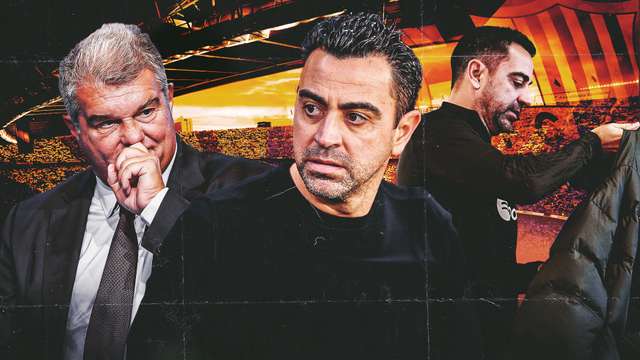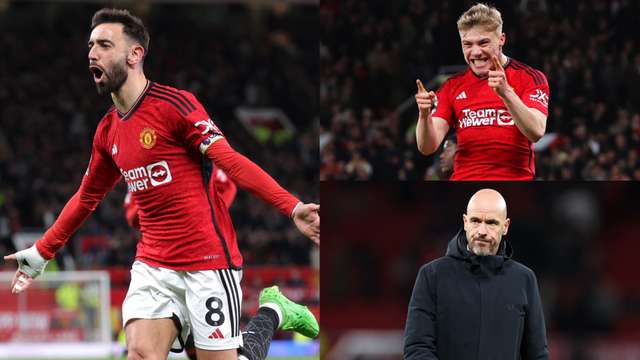Lifestyles of the rich and famous are more accessible than ever courtesy of Instagram.
So, this winter, while you’re huddling in the snow and ice, waiting for your bus to appear, you can make yourself jealous by scrolling through the feeds of millionaire footballers on their sun-soaked holidays. See, for example, Franck Ribery kicking a ball around on the beach in the Maldives.
Wouldn’t it be nice to get away for a few days? Leave this weather behind? Of course it would. And here you will find common ground with any football player who plies his trade in England, rich or poor.
English league players are out there every two or three days performing as well as they can at a time of year when the most stressful thing Neymar is doing is deciding where to take his girlfriend Bruna Marquezine for dinner on the paradise island of Fernando de Noronha.
While top-flight leagues from Spain to Germany, and France to Italy, enjoy a well-deserved in-season break around this time of year, football in the Premier League – and indeed all of England’s other three professional divisions – continues at its relentless pace.
There is a tradition in this country of playing lots of football over the Christmas period – with games on Boxing Day the centrepiece of a hectic schedule – and this season has proven to be even more intense.
There is an agreement between the Premier League and the FA to shutter the top flight a week early this season in order to afford more rest before the World Cup begins in summer. That means one more fixture has been crammed into the Christmas programme.
And the teams are back in action this weekend with the return of the FA Cup.
Pep Guardiola has taken plenty of criticism since arriving on these shores for pointing out the particularities in English football that you don’t find elsewhere. He has described the winter programme which included games on December 31 and January 2 as "not normal", declaring that such demands would "kill" players.
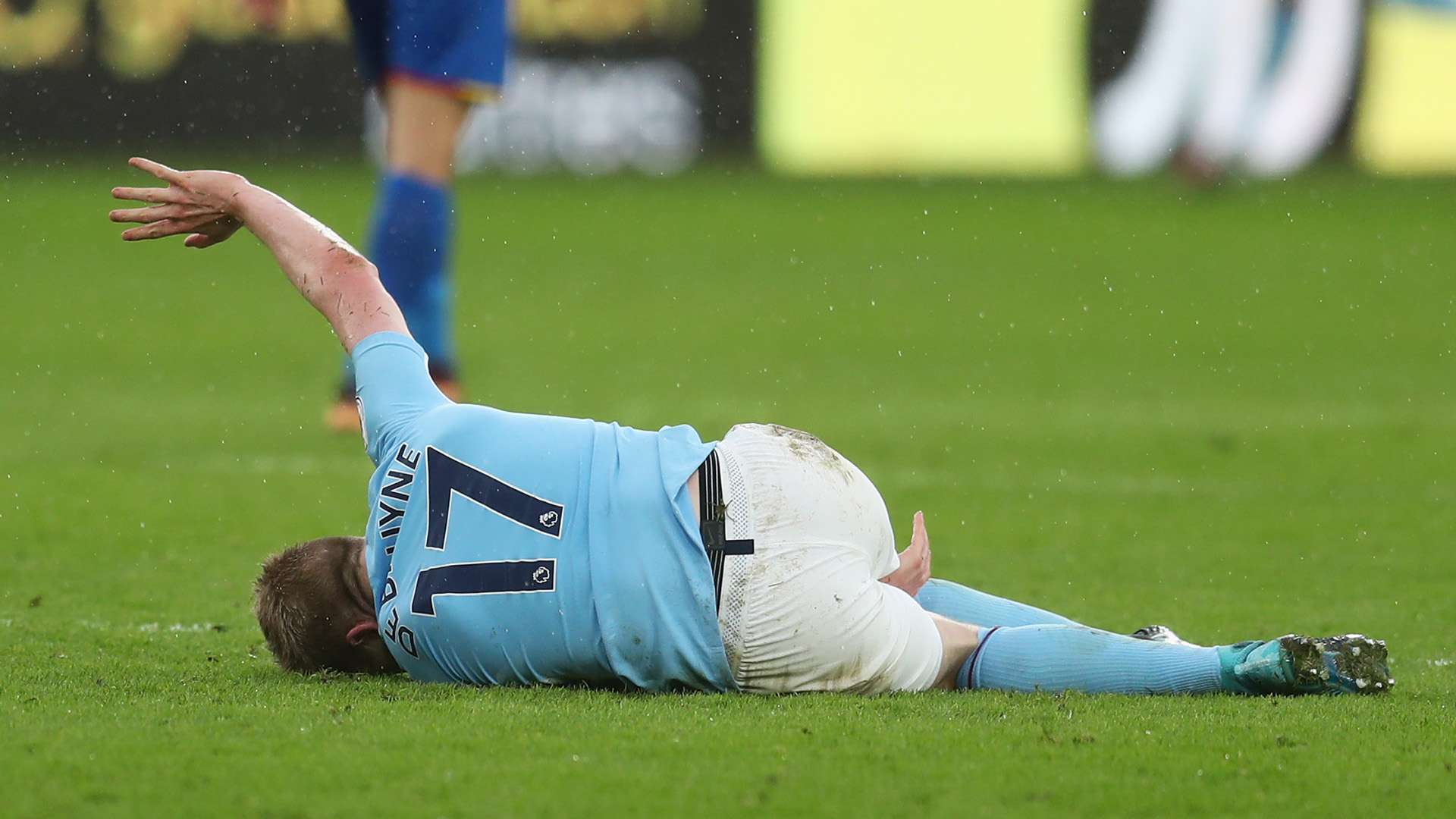 Getty
Getty
It’s worth pointing out here that Guardiola has a big squad, relatively speaking, and plenty of teams down the divisions don’t have the option of calling up from the reserves players of the calibre of Bernardo Silva or Danilo. They must get by with much more prosaic alternatives.
But Pep is bang on here and he has the backing of not only foreign coaches in the Premier League like Marco Silva but the British ones too.
Alan Pardew’s West Bromwich Albion submitted an official complaint to the Premier League over their hectic scheduling. They, like City, had to play two games in 48 hours in order to fulfil their Christmas and New Year fixture obligations.
WBA were unhappy that West Ham would have five extra days’ rest before their clash last Tuesday. Pardew’s team duly lost to their relegation rivals in the last minute, after drawing with Arsenal two days earlier.
The demands on top-level players are intense at the best of times but right in the middle of the season they are kicked up a notch.
“We spoke about some issues in the meeting before the season with the Premier League,” Guardiola said on Friday. “We spoke with them and the managers made the comments for the Premier League.
“The Brighton manager, my colleague, said the same. Just one game less in that period. It’s our opinion.
“[But] it never happened before and I think it will never happen. Next season we are going to play 31st and 2. Or 30 and 1 or 1 and 3. That is going to happen and we are going to play.
“It’s to protect the players, that’s all. We love to play games. I love to be a manger and play during 10/11 months. It’s OK; it’s good. We have everything to recover, mentally.
“Two days is not enough to save our players. Just see how many injuries there are in all the teams. We have meeting with the federation, they ask our opinion, we give our opinion and, after, they decide.”
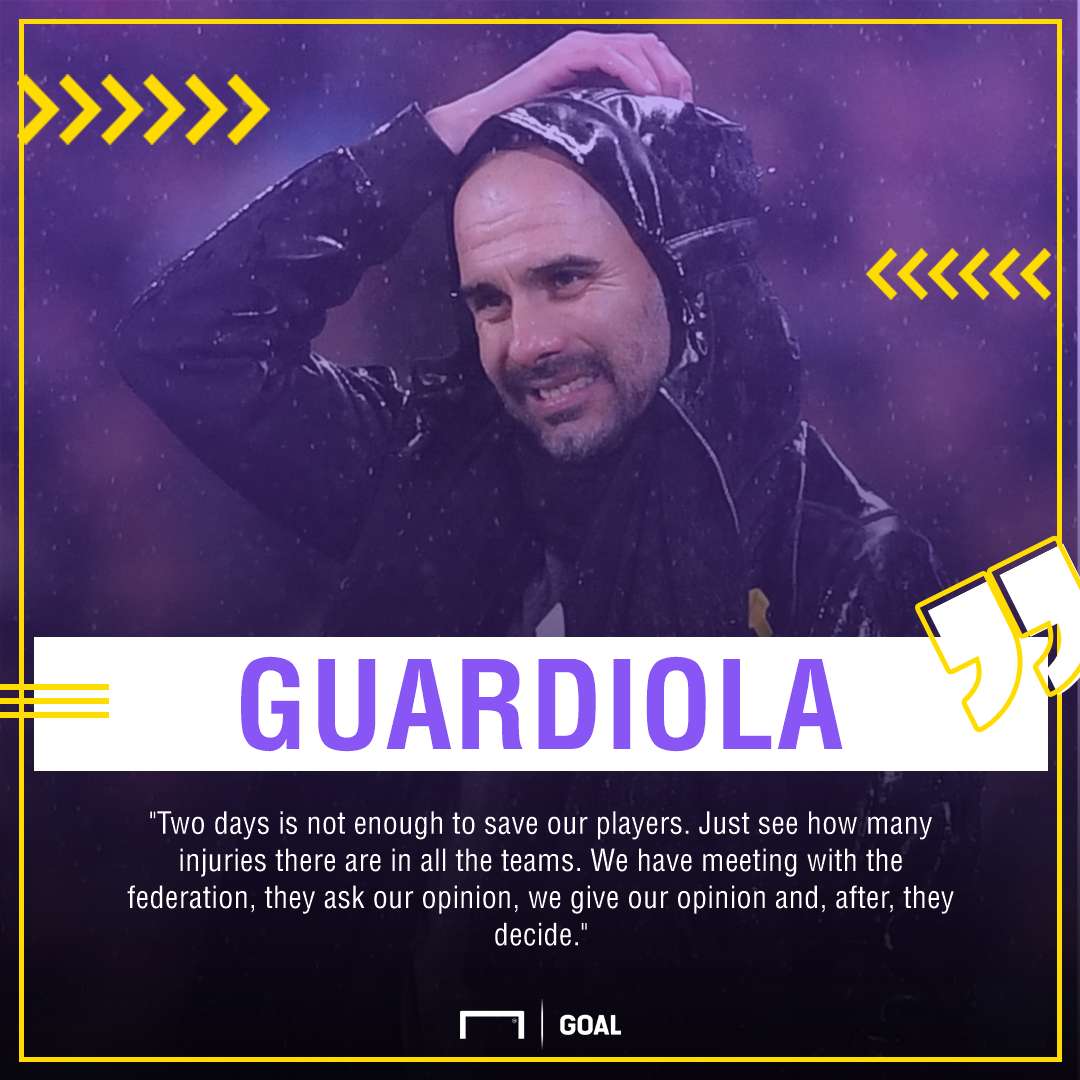 Getty Images/Goal
Getty Images/Goal
Leicester had the hardest time: they drew with Manchester United on December 23 and played all of Watford, Liverpool and Huddersfield Town by New Year's Day. That was a span of only 213 hours to complete those four fixtures.
City, for their part, had only one day rest between their games against Crystal Palace and Watford.
FIFPro, the footballers’ union, confirmed to Goal that it is perturbed by the frequency of fixtures at this time of year in England.
“We have, of course, some concerns about the number of matches played in the festive period in the Premier League, which can have some negative consequences for the performances and health of our players,” said Dr Vincent Gouttebarge, the chief medical officer at FIFPro.
"Congested fixture periods are associated with increased rates of injury, especially in the hamstrings.
"This scientific evidence shows that a short period of recovery between matches (less than three days) is associated with more matches lost.
"[The] injury rate is increased in league matches with less than four days compared with more than six days’ recovery.
"Playing two matches per week with a recovery time of 72-96 hours between these matches leads to a significant higher risk for injury by comparison to one match per week.
"Muscle injury rates during matches are lower when players are given at least six recovery days between matches.”
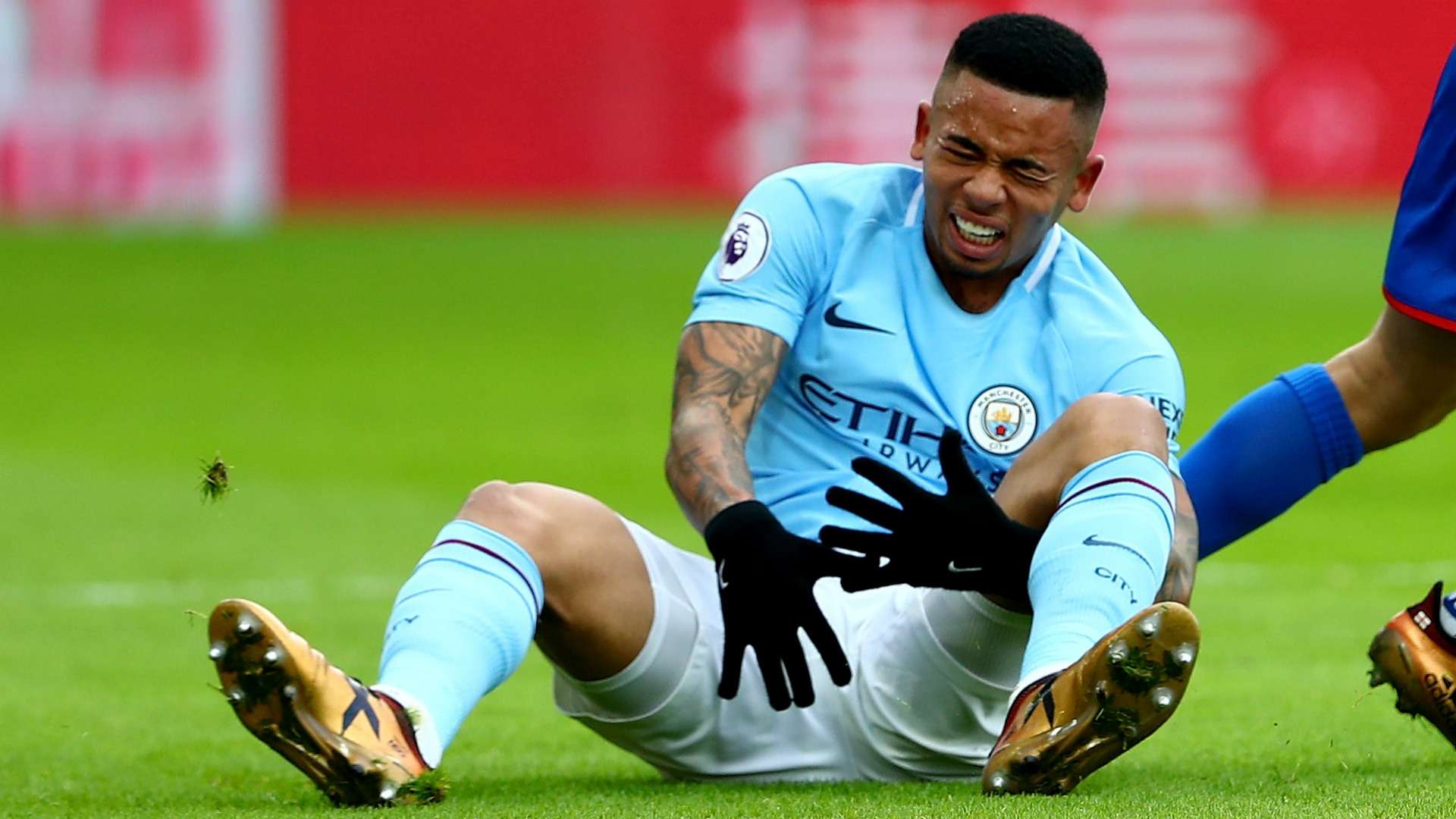 Getty Images
Getty Images
To counteract that strain, FIFPro recommends a winter break in line with other European leagues.
“The in-season break is important to recover physically and mentally from the first half of the season (eight to 10 days),” said Gouttebarge.
It’s going to take its toll on players either now or down the line. In City’s case alone, Kyle Walker hobbled off against Watford with a muscle injury and Gabriel Jesus is currently absent due to knee ligament damage.
Meanwhile, injury data analyst Ben Dinnery estimates that reported injuries have shot up by 26 per cent in December compared to the season average. And while five Premier League teams might well have qualified for the Champions League last 16, they might well be at a disadvantage personnel-wise by the time those games roll around.
Whether it’s scrapping replays in cup ties or cutting the number of teams in the league, the mooted solutions are not new nor would they be implemented easily. But there is a suggestion that the quality of ‘the product’ suffers when games come so thick and fast, and the demands on the players are becoming too much to bear.
“What I miss the most is the time to analyse, not to train a little bit more, have time to analyse what you have done and what you can do better,” said Guardiola. “In that period, you don’t have time for anything else.”
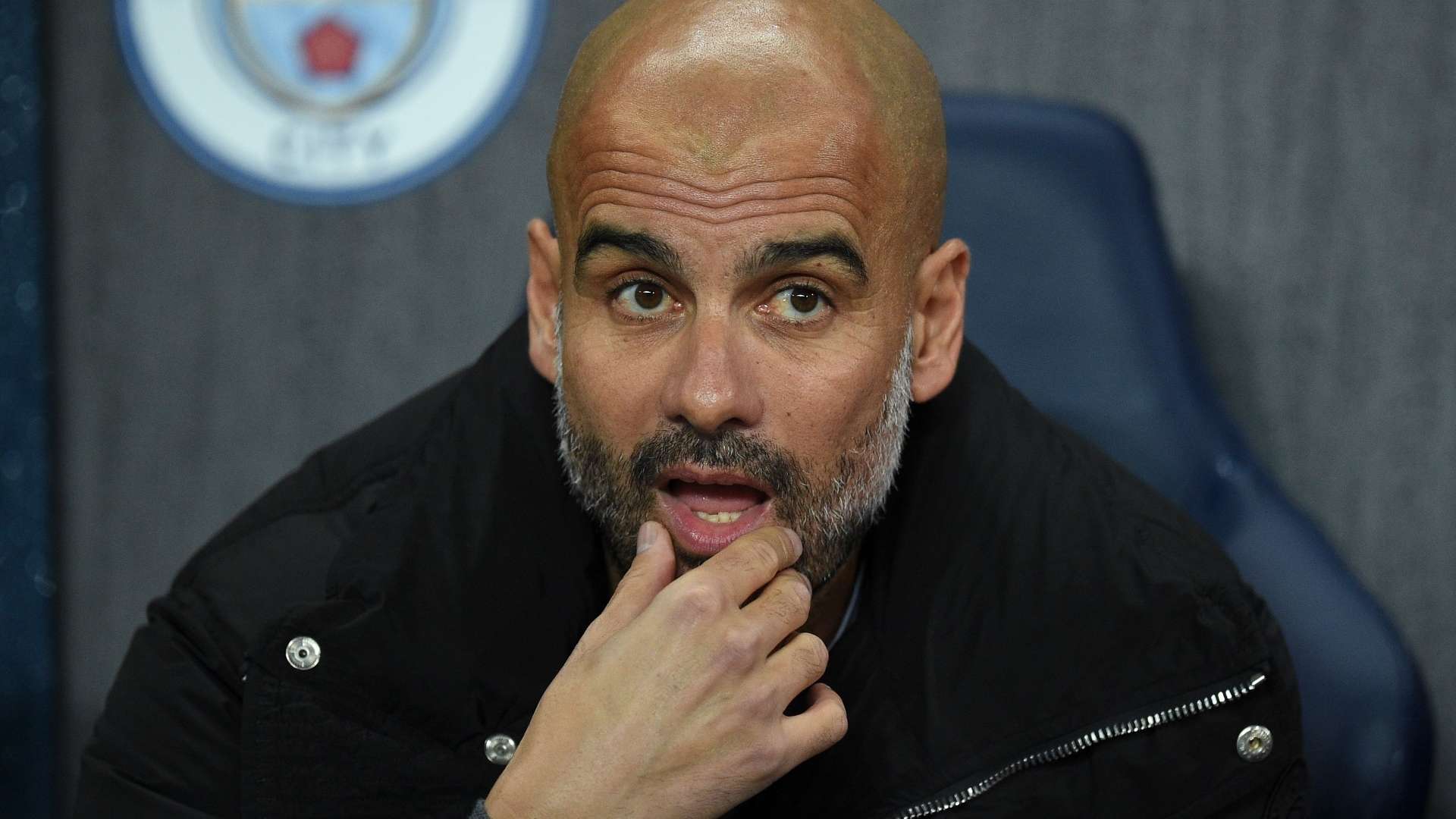
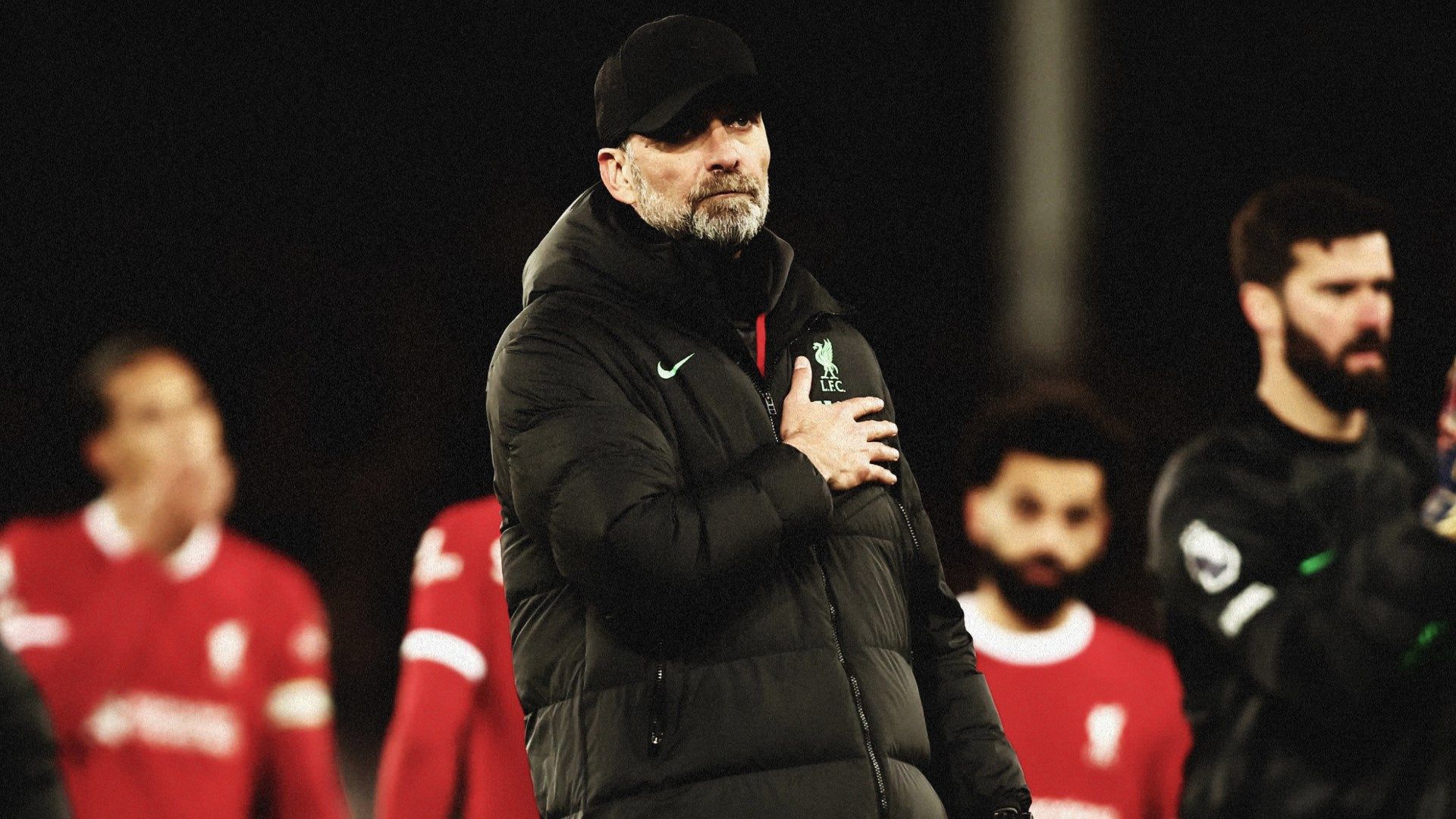.jpg?auto=webp&format=pjpg&width=640&quality=60)
.jpg?auto=webp&format=pjpg&width=640&quality=60)
